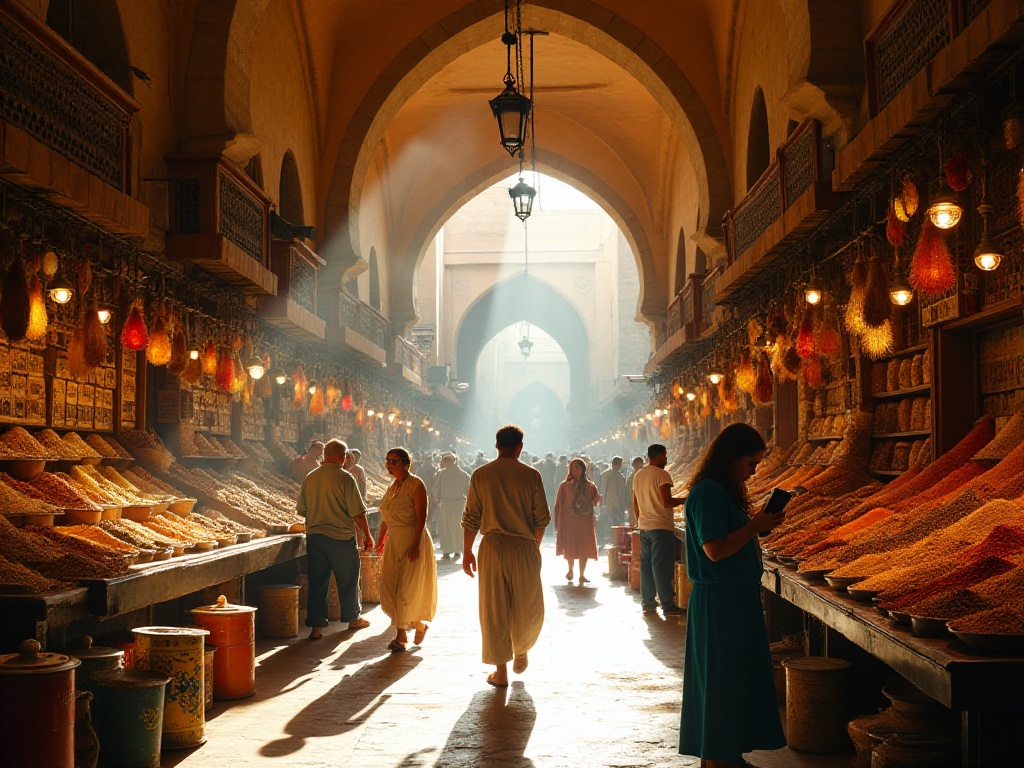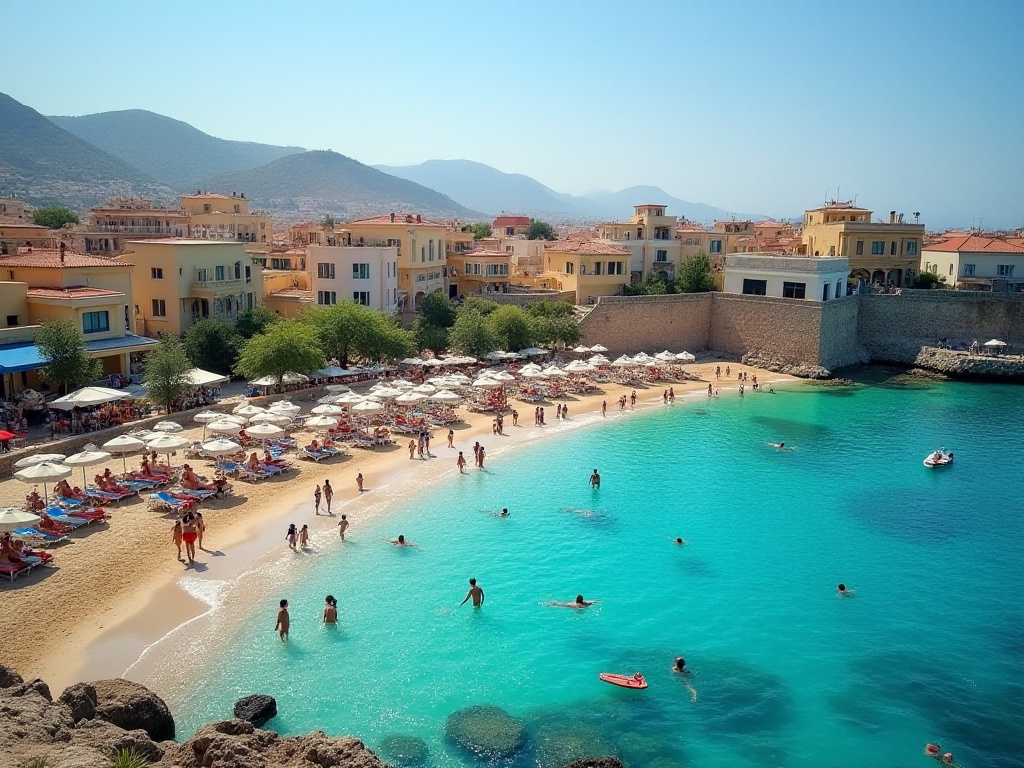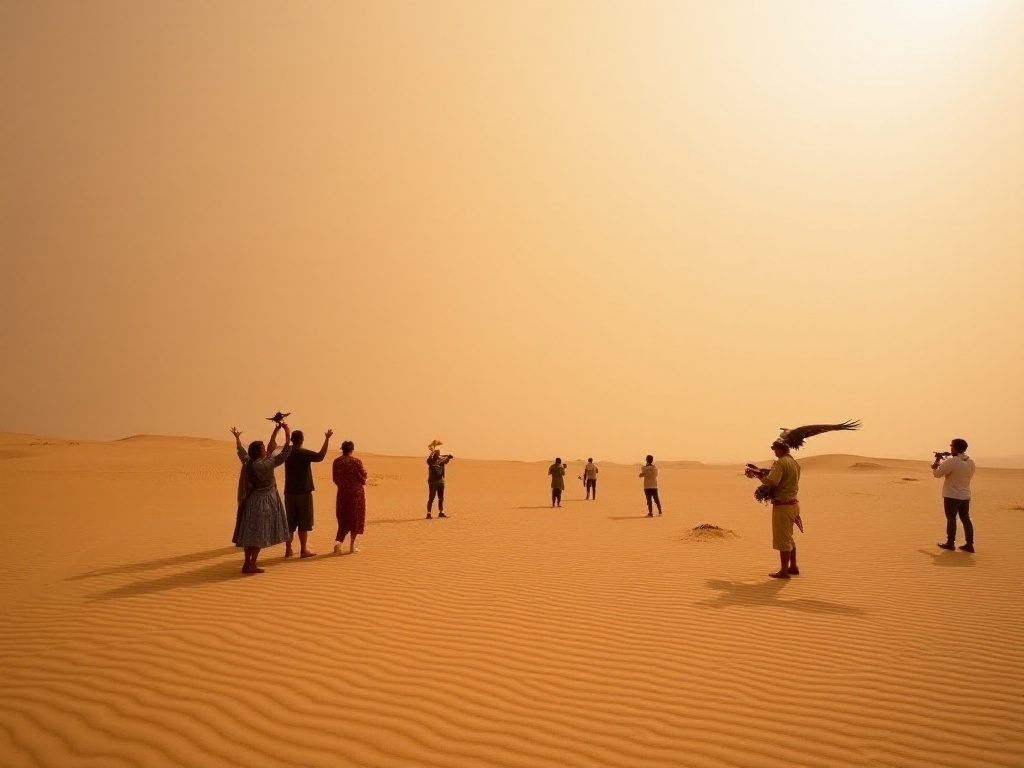Opening Thoughts
I just returned from a vacation in Europe, and this trip really taught me a lesson, especially about choosing the right travel season. You won't believe it, but when I visited Paris in August, I waited in line for 4 hours under the scorching sun just to enter the Louvre. Do you know what that means? A full 240 minutes! When I visited in March, it only took half an hour to get in leisurely. This experience really made me realize how important it is to choose the right season for travel.
To be honest, I used to be a travel novice who thought any time was fine to visit. Only after experiencing several painful lessons did I understand there's much more to it. Now, choosing the right season is one of my primary considerations when planning a trip.
Peak Season Truth
When people mention peak tourist season, most think of "crowded masses." But honestly, this description is too gentle. Let me tell you exactly how crazy peak season can be.
Remember my Japan trip last year? Cherry blossom season in April made me question life itself. Hotel prices in Tokyo doubled from normal rates - the three-star hotel I stayed in normally costs 600 yuan per night, but during cherry blossom season it was over 1,300! Rooms were incredibly hard to book; even booking two months in advance, many of my preferred hotels were fully booked.
Airfare was even more frightening - round-trip economy tickets cost over 7,000 yuan, nearly double the usual price. Most dramatically, at Senso-ji Temple, we had to queue just to take photos, as if every tourist in Tokyo had gathered in one place.
However, there are reasons why peak season is so popular. Take Southeast Asia for example - the peak season from November to February has perfect weather. When I was in Phuket last year during this time, it was amazing! Temperatures around 25°C during the day, moderate humidity, crystal-clear water - no worries about intense sun or disappointing rain. Lying on the beach, looking at the blue sky and white clouds, listening to the waves - that's exactly what a vacation should be like.
Based on my years of travel experience and detailed statistics, accommodation costs during peak season increase by 40-60% on average. In some particularly popular places, prices can rise by over 80%. Waiting times at attractions are even more extreme, often tripling compared to normal periods.
Take the Eiffel Tower in Paris - normally it takes about an hour to go up, but during July and August's peak season, the wait easily reaches 3-4 hours. Plus, tourist behavior varies greatly during peak season, with some people completely disregarding others just to take photos, which really affects the experience.
I specifically tracked my travel expenses from recent years and found peak season costs are truly shocking. In Europe, for example, just airfare and accommodation costs are about 50% higher than during off-season. Many popular restaurants require reservations a month in advance during peak season - if you don't book, you can only watch others post their food pictures on social media.
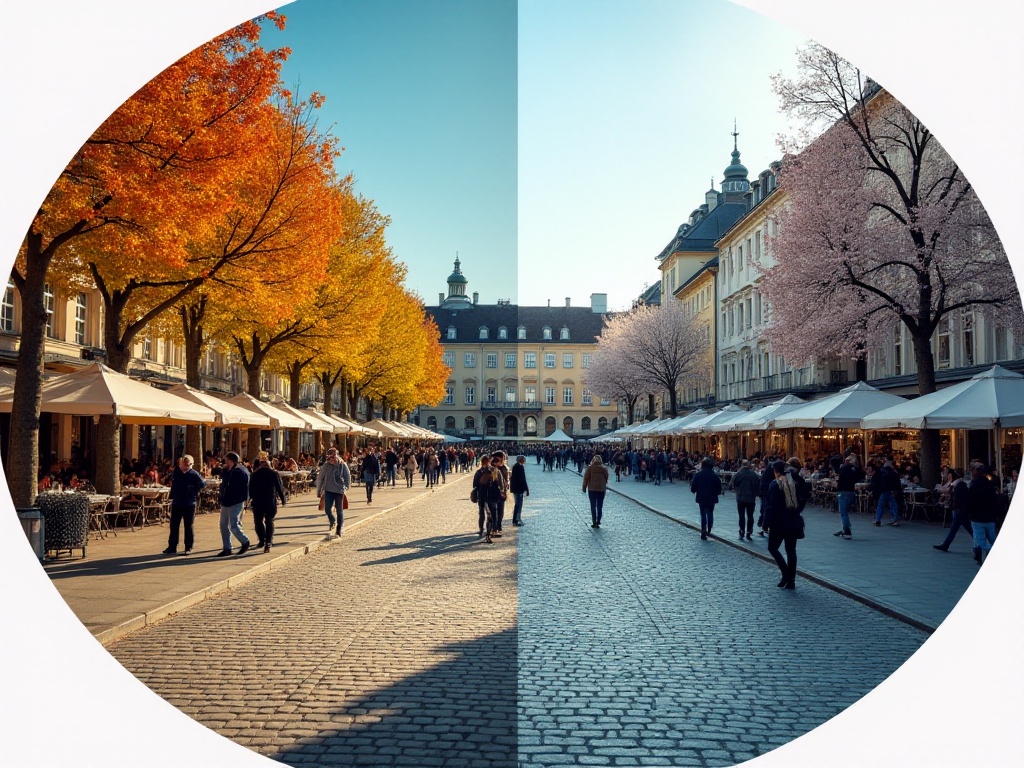
Shoulder Season Tips
Honestly, shoulder season is absolutely the golden period for travel in my opinion. It's like a perfect balance point, avoiding both peak season inconveniences and off-season limitations. My most memorable experience was last October in Tuscany, Italy.
Tuscany was unbelievably beautiful then! The vineyards had just finished harvesting grapes, and a faint fruity aroma lingered in the air. The weather was comfortable, around 20°C during the day, slightly cooler in the mornings and evenings, never too hot. Best of all, there were noticeably fewer tourists than during peak season, and I could often find a quiet corner in the vineyards to peacefully appreciate Tuscany's beauty.
Many people might ask when exactly shoulder season is. Actually, it varies by location. In Europe, for example, April-May in spring and September-October in autumn are typical shoulder seasons. The weather is particularly pleasant then, neither too cold nor too hot, and you can enjoy spring flowers or autumn scenery.
Based on my booking experience, airfares during shoulder season are about 25% cheaper than peak season, and hotel prices save you around 30%. More importantly, the travel experience is especially good. Attractions aren't too crowded, restaurant reservations are relatively easy, and sometimes you might encounter special local festivals.
I particularly love visiting Venice during shoulder season. Venice during peak season is literally hell on earth, with over 80,000 tourists cramming into St. Mark's Square daily, making it impossible to see the square's true face. But during shoulder season, tourist numbers drop to around 30,000, and the whole city's pace slows down. You can leisurely stroll through the alleys, discover hidden restaurants, or sit in a plaza café slowly savoring this water city's charm.
Another advantage of shoulder season is experiencing special festival activities. For instance, when I was in Munich, Germany last October, I caught the tail end of Oktoberfest. While still busy, it was much better than peak festival time, and I could still enjoy the festive atmosphere.
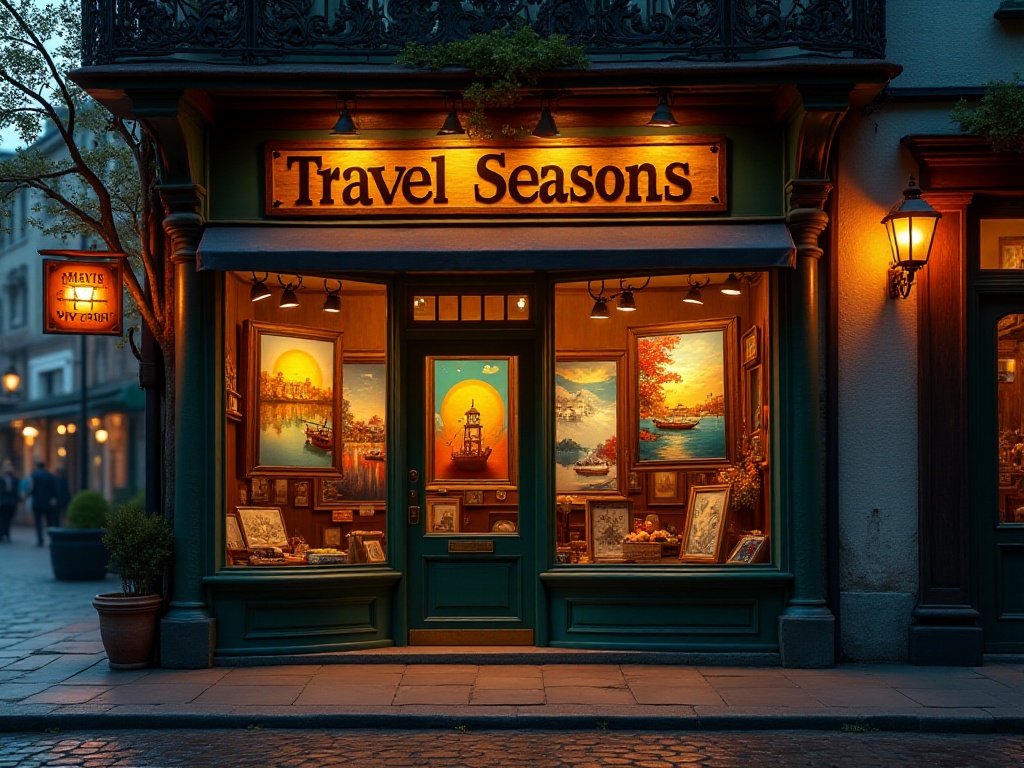
Off-Season Strategy
To be honest, many people shake their heads at the mention of off-season travel. But from my experience, off-season travel has many unique charms - the key is knowing how to do it right. Last December, I spent an unforgettable time in Santorini, Greece. While I couldn't swim in the Aegean Sea like in summer, winter Santorini had its own special beauty.
Morning sunlight falling on white houses, the distant Aegean Sea gleaming deep blue. The town had few tourists, and I could slowly walk the stone-paved paths without worrying about being pushed by crowds. Best of all, I stayed in a luxury hotel that normally costs 1,000 euros per night for just 400 euros, and even got upgraded to a sea view room.
The biggest advantage of off-season is the low prices. According to my statistics, airfares can be up to 60% cheaper than peak season, with some routes offering even bigger discounts. Hotel prices are even more surprising, with many luxury hotels offering special deals at 30-40% off. Moreover, service quality is often better during off-season because staff aren't as busy and can spend more time with each guest.
However, off-season travel does require special attention to certain matters. Most importantly, you need to check attraction and restaurant operating hours in advance. I learned this lesson in Venice when I specifically sought out a highly-rated restaurant only to find it closed for winter. So for off-season travel, you must do thorough research and confirm all planned destinations.
Additionally, off-season weather can be unstable, so itineraries need to be flexible. When traveling in the Scottish Highlands, I prepared two plans. If the weather was good, I'd go hiking; if it rained, I'd visit castles and whisky distilleries. This way, weather wouldn't affect my mood.
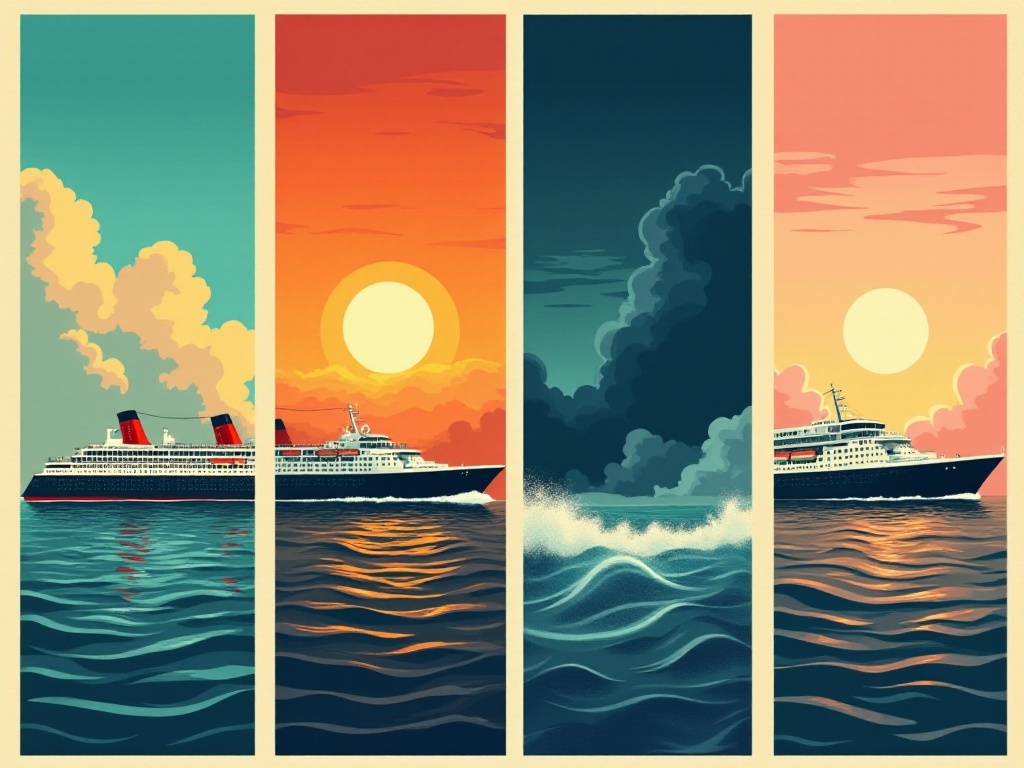
Industry Applications
The tourism industry is increasingly focusing on seasonal product development. A travel agency I previously worked with was particularly good at designing products based on different seasonal characteristics. For example, during cherry blossom season, they would offer specially customized Japan cherry blossom tours that included not only classic viewing spots but also local cultural activities to give tourists a deeper Japanese cultural experience.
In autumn, they would launch in-depth European tours, taking tourists to experience grape harvesting at wineries or view autumn scenery in the Alps. During off-season, they would promote special price tours, attracting travelers with limited budgets but plenty of time with great value deals.
Most interestingly, many tourist destinations are now focusing on off-season marketing, trying to turn the low season into a special season. Iceland is a great example. Previously, Iceland had virtually no tourists in winter, but now they've packaged northern lights tourism, making winter another peak season. Tourists can not only see spectacular auroras but also experience glacier hiking, hot springs, and other special activities.
I've noticed some niche destinations are starting to follow this approach. For example, some coastal cities hold food festivals or art festivals in winter to attract tourists during the off-season. This approach not only increases off-season income but also balances tourism resource utilization better.
Some travel agencies are now promoting "counter-seasonal" travel products. For instance, organizing trips to Australia or New Zealand in the Southern Hemisphere during the Northern Hemisphere's winter. This allows tourists to escape cold weather while experiencing a completely different seasonal feeling.

Final Thoughts
Ultimately, choosing a travel season is about finding the right balance between time, money, and experience that suits you best. Each season has its unique charm and advantages; the key is making wise choices based on your actual situation.
If you have a sufficient budget but inflexible time, peak season travel is fine as long as you prepare well. If you want high value for money, shoulder season is definitely the best choice. And if you have plenty of time but a limited budget, off-season travel can bring unexpected surprises.
I've noticed many people find travel particularly exhausting, largely because they haven't chosen the right season. Visiting popular attractions during peak season can be physically and mentally draining just from queuing. But if you choose the right season, the same attractions can give you a completely different experience.
So next time you plan a trip, spend some time researching your destination's seasonal characteristics. Trust me, it's definitely a worthwhile investment. After all, who doesn't want to get a better travel experience for less money?
So here's the question: If you could choose the most suitable travel season for yourself, which would you pick? Feel free to share your thoughts in the comments.


